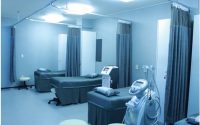Signs of Neurological Disorders That You Should Not Ignore

Introduction
Neurological disorders are diseases that occur in the central and peripheral nervous systems of the human body. According to researchers and experts, the neurological disorder is persistent in adults. As such, people whose age is 55 and above are more likely to suffer from neurological disorders. It is important to note that over 500 types of neurological disorders, and the most common ones are epilepsy, Alzheimer’s disease, brain tumors, and cerebral aneurysms. Calamitously, the neurological disorder is the leading cause of stroke, and due to this, more than 6 million people die each year. If you witness any sign of neurological disorders, it is vital to consider consultingatop neurology hospital in Bangalore.
Symptoms
The signs of neurological disorders vary to a great extent. It depends on the specific infected area of the body as well as the degree of pain. Generally, there are two types of symptoms in neurological disorders.
1. Emotional symptoms
It is human nature to concede that you are suffering from disease only when experiencing physical symptoms. However, in the case of neurological disorders, emotional symptoms are a worry. In emotional cues, you might experience mood swings, regular outbursts, depression, and delusions. It is highly advisable not to ignore emotional symptoms.
2. Physical symptoms
On the other hand, physical symptoms make an instant click in your mind that there is something to worry about your body.
The following are the physical signs of neurological disease.
Paralysis
In some neurological disorders, unfortunately, paralysis occurs. In this condition, the paralyzed part of the body stops functioning and is effectively responsive. Additionally, the affected part of the body loses its connection with the brain. This can be a temporary or permanent mishap.
Muscle weakness
Muscle weakness is described as a lack of strength to perform any action. It is sometimes also known as reduced muscle strength. When making an action or movement, the brain usually sends a signal to muscle with the spinal cord’s help and neurological nerves to contract. Nevertheless, when connections between muscles and the brain are disturbed, it results in muscle weakness.
Loss of sensation
Cells present in our body give us a sensation about heat, cold, or pain. Loss of senses is a result of damaged nerves.
Seizures
The sudden and intermittent electrical shock disturbance that occurs in the brain causes a seizure. The continued occurrence of episodes is a sign of having epilepsy. Furthermore, the attack occurs due to brain disorder.
Causes of Neurological disorder
The common causes behind the neurological disorder are Genetic disorder and Congenital abnormalities as detailed below:
Genetic disorder
The genome causes a congenital disease. The genome is the genetic material of a living organism. There are around 6000 genetic disorders.
Genetically transferred neurological diseases are the following:
Alzheimer
This disease causes a significant reduction in brain memory and cognitive function. Alzheimer’s is a genetic disorder and is transferred genetically.
Huntington’s disease:
This disorder causes psychiatric changes and involuntary movements.
Epilepsy
In this disease, the activity of the brain is affected. Epilepsy causes specific unusual behavior and sensations in the human body.
Congenital abnormalities
Congenital abnormalities are one of the causes of brain disorders. The disease present in a baby since the baby has been born is known as a cognitive disorder. Sometimes neurological disorder occurs because the baby is weak and has not enough energy to fight the disease that occurs in the baby.
Malnutrition
Nutrition is essential for the whole human body. Experts believe that healthy fruits and vegetables result in a sharp mind and a healthy life. Research shows that a person with a complete basic nutrition plan has likely low chances of neurological disorder.
Brain injury
Sometimes a natural accident occurs, or a person falls from a distinct location that causes injury. In this, the cells which transfer messages from the brain to other body parts are heavily damaged. Due to which the neurological disease occurs.
Remedies
- The neurological disorder is very complicated and must be treated immediately. The patient must change lifestyle to prevent further impacts of the disease.
- Physiotherapy manages symptoms.
- The therapeutic methods are beneficial in cases of neurological disorder. These therapeutic methods help in recovering from stroke, traumatic, and brain disease.
- One can visit a top neurology hospital in Bangalore to deal with a neurological disorder.
Parting thoughts
The neurological disorder occurs mainly after the age of 55 years. In this disease, the mind and its function are heavily affected—moreover, the brain control hormones, and the whole nervous system of the human body. The nervous system transfers the messages to different parts of the body. Due to specific causes, the brain is unable to control the functioning of particular body parts.


